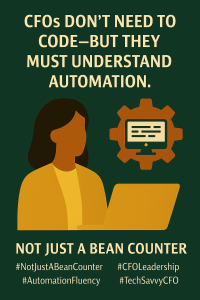Accountants play a critical role in the moments that define a company’s future. Here we discuss how we lead and advise during IPOs, mergers, acquisitions, and board-level discussions—combining compliance expertise with strategic storytelling and operational insight.
IPO-Ready Leadership
We accountants are essential in preparing organizations for going public. We ensure GAAP compliance, and are key to implementing internal controls, building audit readiness, and developing investor-grade financial reporting.
In addition, what other departments inside a company knows as much about how the company operates. As such, accountants serve as the financial storytellers, acting in more than just a check-the-box capacity. Accountants help translate, for the investors, the financial trajectory of the company while working with finance and operations to give the complete story.

Two of the most important tools in an IPO or SEC filing are: great accountants/consultants and great SEC attorneys. However, accountants also serve in the capacity of translators and intermediaries with the other groups such as external consultants and SEC Attorneys. Chances are, the SEC attorney has supplied a draft of the S-1 filing that was put together by one of their associates, copying and pasting it from a previous filing. This is a great starting point but someone has to take it and hammer it into shape to meet the company’s outline…that is usually the accountant.
M&A Architects
From due diligence and valuation to integration planning, accountants assess financial risks and synergies, enabling leadership to make informed acquisition or divestiture decisions. Whether buying or selling, M&A is a fast paced and high stakes game. Chances are the CFO is involved, however, who do you think will be doing all the work? Ever heard of the business fable of the chicken and the pig? When you are serving ham and eggs, the chicken is “involved”…but the pig is “committed.” In this case, accountants are the pig, definitely committed.

This is true especially post-deal. It is not the CFO who will be in the trenches integrating, whether it is integrating into another company or integrating another company into yours. Accountants are the ones that will be aligning processes, controls, ensuring appropriate personnel, removing redundancies…probably even handling the insurance, whether it’s the liability insurance or making sure their employees get meshed in with the corporate plan.
Remember it is the accountant’s fluency in both GAAP and the business operations that make us so valuable.
Trusted Advisors at the Table
In boardrooms, we deliver insights that clarify financial impact, scenario modeling, and risk exposure—helping directors and executives navigate complexity with confidence. They want more than just reporting. Yes, they want to know they have good numbers, but they want to understand those numbers. They want to make sure their risks are covered. Proper reporting and a robust internal control environment is important, but so is understanding the position and future of the company so the board and executives can make informed decisions about capital and resource allocation, environmental, social and governance policies, and the direction that the company is sailing.

Conclusion
Accounting is no longer just about compliance—it’s about contribution. Today’s accounting professionals must combine financial acumen with strategic vision, leveraging automation, analytics, and cross-functional insights to shape the future of their organizations. From transforming operational efficiency to leading IPO readiness and M&A integration, accountants are redefining their role as architects of strategy, communication, and trust.
Ready to lead beyond the ledger?
Follow us on:







